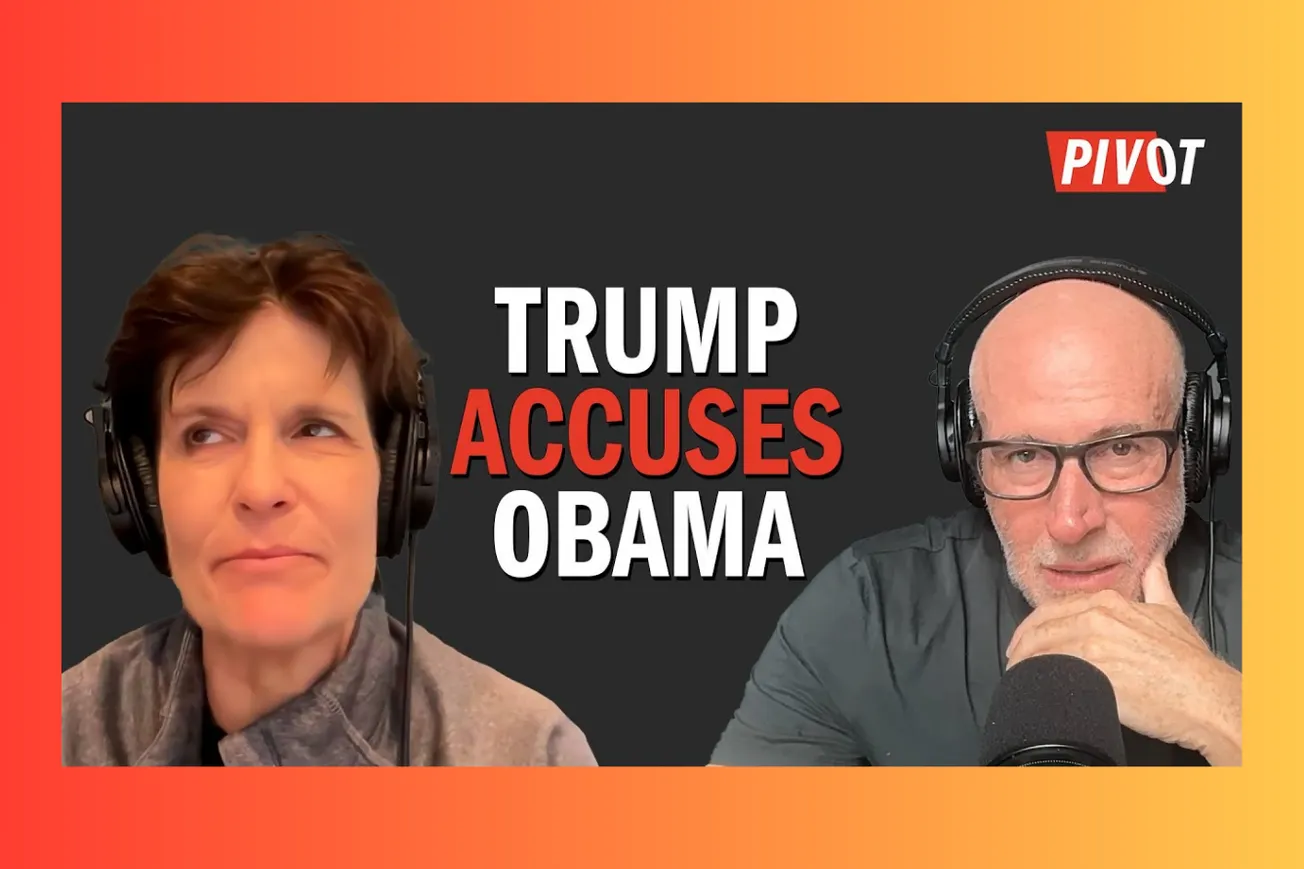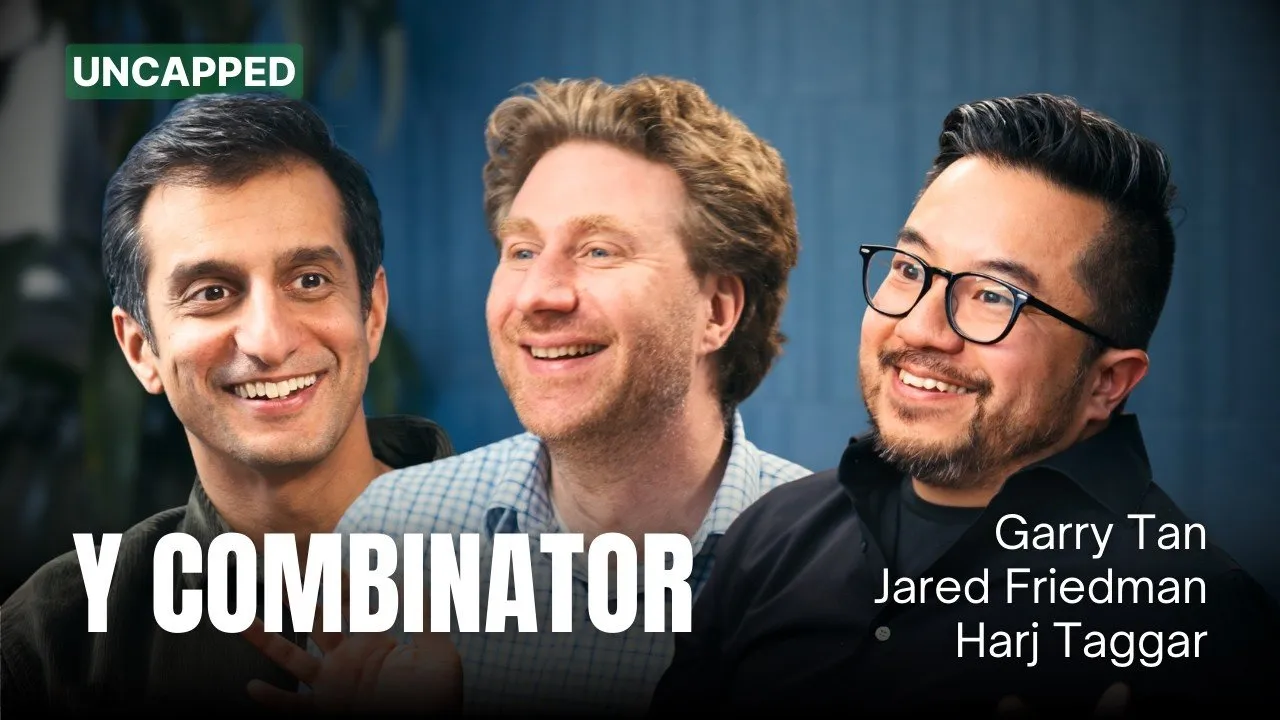Table of Contents
Political analysts examine Trump's systematic approach to redirecting media attention from damaging Epstein connections through provocative Obama conspiracy theories.
Key Takeaways
- Trump's name appears multiple times in Epstein files, prompting coordinated distraction campaigns targeting Obama and other Democratic figures
- The Obama treason accusations represent Trump's most effective deflection strategy, tapping into existing MAGA conspiracy theories about election rigging
- Tesla's automotive revenue declined 16% year-over-year while Cybertruck sales plummeted 52%, forcing Musk into his own distraction plays
- Ghislaine Maxwell's upcoming testimony appears orchestrated, with experts predicting a eventual presidential pardon in exchange for exonerating statements
- Trump's AI executive orders primarily benefit Silicon Valley donors rather than addressing substantive policy concerns about copyright and innovation
- Columbia University's $200 million fine signals unprecedented government interference in private educational institutions under the guise of anti-discrimination enforcement
- The Justice Department's approach represents a dangerous reversal of traditional prosecutorial priorities, working down the criminal hierarchy instead of up
The Epstein File Revelation Strategy
Trump's appearance in Jeffrey Epstein's files was hardly surprising, but the coordinated response reveals sophisticated damage control tactics. According to Wall Street Journal reporting, Attorney General Pam Bondi informed Trump in May that his name surfaces multiple times throughout the documentation. Bondi's conclusion that nothing warranted further investigation represents the first layer of legal protection around the scandal.
- The House Oversight Committee's strategic timing of Epstein file subpoenas hours before summer recess demonstrates deliberate procedural manipulation to avoid sustained scrutiny
- Mike Johnson's orchestration of the early adjournment prevents ongoing votes that might maintain public attention on Epstein connections
- Federal judges in Florida have denied DOJ requests to release grand jury transcripts, creating additional barriers to transparency
- Ghislaine Maxwell's sudden relevance to House investigators appears suspiciously convenient after years of minimal congressional interest
- The decision to subpoena Maxwell while she faces existing perjury charges from previous Epstein-related testimony raises questions about witness credibility
- Legal experts suggest coordination between Maxwell's legal team and Trump associates regarding potential testimony favorable to the former president
The timing coincidence between renewed Maxwell interest and Trump's mounting legal pressures suggests coordinated legal strategy. As one analyst noted, "All of a sudden they've decided they might want to speak to Ghislaine Maxwell."
Obama as the Ultimate Distraction Target
Trump's pivot to accusing Barack Obama of treason represents his most strategically sound deflection tactic. Unlike his other distraction attempts involving JFK files or Washington Commanders naming rights, the Obama conspiracy theory directly feeds existing MAGA movement beliefs about election rigging and deep state operations.
- Tulsi Gabbard's role as Director of National Intelligence provides official credibility to otherwise debunked conspiracy theories about Obama-era intelligence operations
- The declassified materials Gabbard released claiming to detail a "year-long coup" by Obama officials have been easily debunked by initial journalistic scrutiny
- Trump's Oval Office statements about going after "Obama, Biden, Comey, and others" signal expanded targeting of Democratic leadership figures
- The Obama accusations specifically invoke 2016 election rigging claims, directly reinforcing core MAGA conspiracy theories about electoral legitimacy
- Obama's spokesman's characterization of Trump's comments as "bizarre allegations" and "ridiculous attempts at distraction" confirms the defensive posture
- The strategy exploits the intersection between Epstein conspiracy theories and deep state narratives, creating unified opposition mythology
Obama's previous reluctance to directly engage Trump's provocations has historically allowed conspiracy theories to metastasize unchallenged. Political observers note that "what does animate these people is the rigging of the 2016 election that this does satisfy them."
Tesla's Financial Reality Check
Elon Musk's Tesla faces unprecedented challenges as automotive revenue continues declining while the company maintains an impossible trillion-dollar market valuation. The stark disconnect between financial performance and stock price creates urgent pressure for dramatic pivots toward artificial intelligence narratives.
- Tesla reported 16% year-over-year decline in automotive revenue despite being primarily positioned as an automotive company
- Adjusted net income fell 23% to $1.4 billion, representing significant profitability erosion across core business operations
- Model Y and Model 3 sales dropped 12%, indicating broader consumer demand weakness beyond premium vehicle segments
- Cybertruck sales collapsed 52%, making it arguably the worst major automotive product launch of the year
- The timing of Tesla's diner announcement days before earnings suggests calculated distraction from disappointing financial results
- Musk's acknowledgment of "probably a few rough quarters" ahead signals management awareness of structural business challenges
The company's supercharging station network remains the primary bright spot in an otherwise deteriorating business landscape. However, no automobile company globally trades at Tesla's PE ratio of 180 while simultaneously posting declining revenues faster than traditional manufacturers like Renault.
- Tesla's trillion-dollar market capitalization increasingly appears disconnected from underlying automotive business fundamentals
- Musk's desperation to wrap Tesla in artificial intelligence narratives reflects understanding that current valuations cannot sustain automotive reality
- The $13 billion XAI investment represents massive capital deployment with minimal revenue prospects in highly competitive AI markets
- SpaceX documentation warning investors about Musk's political activities signals even core supporters recognize distraction risks
- Japanese automaker stock surges of 12-18% following trade deal announcements demonstrate market recognition of competitive advantages
- Traditional US automakers like GM face tariff costs exceeding $1 billion while losing market share to international competitors
The Silicon Valley Payback Summit
Trump's AI action plan, unveiled at the All-In podcast's Washington summit, represents transparent political payback to Silicon Valley donors rather than substantive technology policy. The executive orders primarily benefit tech companies through deregulation while offering minimal protection for creative industries facing AI disruption.
- The three executive orders focus on fast-tracking data center permitting, promoting American technology abroad, and banning "ideologically based" AI systems from federal contracts
- Trump's comments about copyright law reveal fundamental misunderstanding of intellectual property frameworks protecting creative industries
- The assertion that AI companies shouldn't pay for training data on books and articles ignores existing successful royalty models in music industry
- David Sacks and other All-In podcast hosts positioned themselves as intermediaries between Silicon Valley interests and Trump administration policies
- The summit's failure to address deepfake technology represents glaring omission given stated concerns about AI-generated harmful content
- SoftBank and OpenAI's struggling $500 billion Stargate project demonstrates gap between announced initiatives and actual implementation capacity
Trump's off-script commentary about trans athletes and tariffs during the AI summit revealed the performative nature of the technology focus. The event primarily served as visible reward for tech industry political contributions rather than serious policy development.
- The proposed elimination of copyright protections would transfer wealth from creative industries in Los Angeles and New York to Silicon Valley technology companies
- Congressional legislation by Josh Hawley and Richard Blumenthal requiring AI companies to obtain consent for content usage faces stronger legal foundation than Trump's executive orders
- Governor Newsom's criticism highlighting the connection between AI policy and child protection issues demonstrates political vulnerability in Trump's approach
- The lack of concrete implementation timelines for announced AI initiatives suggests more focus on headlines than operational results
- Traditional media companies' historical failure to negotiate favorable terms with platforms like YouTube provides cautionary example for current AI content disputes
- The music industry's successful implementation of royalty systems for radio play demonstrates viable models for AI training data compensation
Government Overreach in Higher Education
Columbia University's $200 million settlement with the Trump administration represents unprecedented federal interference in private educational institutions. The agreement establishes dangerous precedent for government control over university admissions and academic policies under anti-discrimination pretexts.
- The Columbia settlement forces university compliance with federal demands regarding DEI programs and admissions criteria without legislative authorization
- Trump's approach bypasses systematic policy implementation across all universities in favor of targeted punishment of specific institutions
- The administration's focus on individual universities rather than sector-wide reform suggests personal vendetta motivations over genuine policy goals
- Federal student loan backing provides legitimate leverage for government input into university policies, but should apply systematically rather than selectively
- Traditional university tenure systems exist specifically to protect academic freedom from government interference in research and teaching
- The Justice Department's reversal from prosecuting up criminal hierarchies to protecting senior figures represents fundamental corruption of law enforcement principles
Universities historically located outside city centers to enable controversial research without political interference. The current federal approach undermines this foundational academic freedom principle.
- Race-based affirmative action policies have evolved from addressing historical exclusion (12 black students at Harvard, Princeton, and Yale combined in the 1960s) to current demographics where 60% of Harvard's freshman class identifies as non-white
- However, 70% of non-white Harvard admits come from upper-income households, suggesting class-based rather than race-based disadvantages drive educational inequality
- University of California's adversity index model provides template for socioeconomic-based admissions criteria that address actual disadvantages rather than demographic categories
- Legacy admissions preferences continue benefiting wealthy families regardless of race, representing larger systemic inequality than current affirmative action programs
- International funding streams, particularly Qatar's $4 billion in university donations, create foreign influence concerns that merit federal oversight
- The solution involves increasing university capacity and affordability rather than government control over admissions criteria and academic content
The Maxwell Pardon Prediction
Legal experts anticipate orchestrated testimony from Ghislaine Maxwell followed by presidential pardon, representing corruption of justice system to protect Trump from Epstein scandal fallout. The predicted sequence involves Maxwell providing exonerating testimony in exchange for clemency at the end of Trump's term.
- Maxwell's sudden relevance to congressional investigators appears coordinated with Trump legal team strategy rather than genuine pursuit of justice for trafficking victims
- Her existing perjury convictions and sex trafficking record make her inherently unreliable witness, yet House Republicans proceed with subpoena
- The Justice Department's apparent willingness to accept testimony from convicted sex trafficker represents reversal of traditional prosecutorial standards
- Maxwell's incentive structure in federal prison creates obvious motivation to provide favorable testimony regardless of truthfulness
- Trump's advanced age and health status reduce concern about long-term political consequences of controversial pardons
- The focus on Trump's legal exposure overshadows hundreds of young victims whose trauma becomes secondary to political calculations
Traditional DOJ practice involves working up criminal hierarchies from small-time operators to major figures. The current approach reverses this process, seeking testimony to exonerate rather than implicate senior criminal figures.
- Maxwell's equal culpability to Epstein in operating trafficking network makes her pardon particularly egregious given her role as predator rather than bystander
- The victims, many of whom were minors during the abuse, face additional trauma from watching their trafficker potentially receive clemency
- Attorney General Pam Bondi's ethics record regarding Trump creates legitimate concerns about Justice Department independence in Epstein-related investigations
- The 30-60 day window before term expiration provides optimal timing for controversial pardons when political consequences become minimal
- Public attention span limitations regarding complex legal proceedings benefit those seeking to minimize scandal impact through delayed resolution
- The intersection of Epstein conspiracy theories with broader deep state narratives creates unified opposition mythology that serves Trump's political interests
Common Questions
Q: What evidence links Trump to Jeffrey Epstein's activities?
A: Trump's name appears multiple times in Epstein files, though AG Bondi claims nothing warrants prosecution.
Q: Why are Obama conspiracy theories effective political distractions?
A: They reinforce existing MAGA beliefs about election rigging and deep state operations against Trump.
Q: How bad are Tesla's current financial problems?
A: Automotive revenue declined 16% while Cybertruck sales fell 52%, yet the stock maintains trillion-dollar valuation.
Q: What makes the Columbia University settlement concerning?
A: It represents unprecedented federal interference in private university admissions and academic policies.
Q: Will Ghislaine Maxwell likely receive a presidential pardon?
A: Legal experts predict coordinated testimony followed by clemency in Trump's final weeks in office.
Trump's systematic distraction campaigns reveal sophisticated understanding of media cycles and public attention spans. The Epstein file revelations create genuine legal vulnerability that requires sustained deflection through increasingly provocative alternative narratives.





